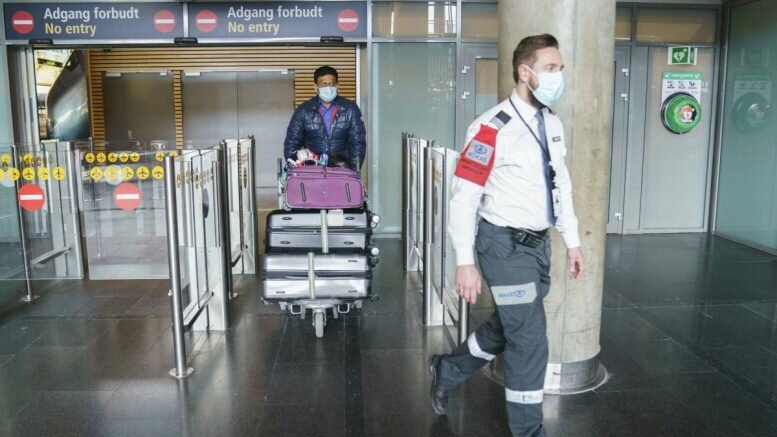Since late November 2020, the Norwegian government has introduced some form of hotel quarantine for all those entering the country from abroad. Originally envisioned to limit the number of imported COVID-19 cases it simply has not done this. It was seen, by some, as a heavy-handed approach that encroached on Norwegian and European citizens’ freedom of movement. For others, who had secure homes or a dwelling to self-isolate in, it was a 10 day waste of time and money. As Norway continues to reopen, what lessons can be learned from Norway’s hotel quarantine program?
Program announced months too late
On November 5, 2020, the government announced that it had expanded the hotel quarantine program. The general rule, from that date, was that people arriving in Norway had to do a 10 day quarantine period at a designated hotel.
This was on top of the fact that they had to present a negative coronavirus test to board the plane AND also take another coronavirus test the moment they set foot on Norwegian soil. At least 8 days (if a COVID-test is negative on the 7th day), stuck in a hotel, at a cost of NOK500,- /day was, the government said, a small price to pay for the public health security of Norway.
However, that this program was expanded, only last November, was the first fault. On February 26, 2020, the Norwegian Institute of Public Health (FHI) announced the nation’s first confirmed case of COVID-19.
This was followed by a national lockdown (the first of many) on March 12. The government then decided to close the borders (somewhat), banning visitors to Norway via Gardermoen Airport. This is when the hotel quarantine program should have been rolled out, not some 8 or so months later.
Countries that took decisive action and announced hotel quarantine quickly after the virus first entered (think Australia, New Zealand) are now better placed than Norway is. Although the COVID-19 pandemic was unlike any crisis Norway had faced in generations a swift and efficient response was required. In an age of instant communication, Norway only had to look to similar countries for how best to coordinate its own hotel quarantine program. There was a feeling that once it was finally instated, the damage had already been done.
Exemptions for some and a punishment for travel for others
Unlike those countries whose government enforced a mandatory quarantine system, Norway’s was patchwork from the very beginning. The list of exemptions that the government granted is relatively long (itself worrying) but there is one that just seems ridiculous.
An exemption is granted to people who have “performed maintenance…to avert material damage…to (a) boat, caravan or similar in Sweden or Finland.”
So someone lucky enough to own a boat, in another country, can flutter away, fix it and avoid hotel quarantine like the rest of the peasants? The granting of this exemption seems bizarre and unnecessary.
It is a slippery slope when the government starts deciding what is and what isn’t “necessary travel” and forcing people into hotel rooms, for days on end, regardless of their health. Just ask one of the thousands of stranded Australians stuck around the world, who can’t even enter their own country of birth/citizenship, what government-defined “essential travel” has cost them both financially and emotionally.
Unable to curb all variants and incubation time
There is no solid proof that the hotel quarantine program has actually proven effective. The government has announced that a key reason for the hotel quarantine program was to “curb more contagious and serious virus variants from abroad”.
Yet Norway has still been hit by second and third waves of the virus and new variants from Brazil, the United Kingdom, South Africa, and, recently, India. They have all found their way into Norway regardless of the program.
In theory, these strains should have been halted in the corridors of a hotel and not allowed to spread throughout the country. In practice, all these new variants have entered the country and spread nonetheless, the latest outbreak affecting Bergen earlier this month.
Although all those incoming into the country must supply a negative COVID-19 test upon arrival, this can be taken up to 72 hours before. The incubation time, for the virus is, according to the FHI, 5-6 days with 98-99.9% of people infected showing symptoms within the first 10 days.
So, these people, even if they presented a negative COVID-19 test could still, in theory, possess the virus and be allowed to travel back to their apartments, houses and/or places of work.
With most travel severely restricted already, the hotel quarantine, though admirable for its initial approach to stop the spread of COVID-19, is just another expensive and cumbersome reason for families and friends to not be reunited with each other since the virus first emerged.
Currently facing legal questions
From a legal standpoint, there are questions being asked, in Europe, and Norway about the legality of the program itself. Despite being located at the northern fringes of the continent Norway has, however, a vibrant and prosperous economy, fuelled by the free flow of people, goods, and capital.
With the government’s various border closures, the free movement of both goods and people has been severely hampered. Should business people, whose purpose of visit is deemed “necessary travel,” be made to quarantine in a hotel even if they present negative COVID tests upon arrival?
There is now a growing legal and academic pushback against the hotel quarantine. Norway is a part of the European Economic Area (EEA) through its membership in the European Free Trade Association (EFTA). One of the core rights guaranteed is the freedom of movement which, at the moment, is restricted against any EEA citizen without a permanent address in Norway.
Furthermore, the International Commission of Jurists branch in Norway announced, last week, that those skipping out of hotel quarantine should not pay the fines (up to NOK 20.000) they are liable for by the government. Lawyer Helge Morset believes that this program is a severe encroachment on fundamental rights.
Government announcement gives a glimmer of hope
This legal and political questioning has started to influence the government into modifying the current program. The government has announced that, from May 27, the distinction between unnecessary and necessary travel will be scrapped for some travelers from the United Kingdom and the EEA.
This is surely not only the smart thing to do (in terms of the infection rates going down in these areas) but also the humanitarian thing to do. Now close friends, extended families, and even students can travel again to Norway. This is a small victory for those that have had to put their studies on hold or be separated from close loved ones of late.
Though the hotel quarantine has an admirable aim of trying to stem the influx of COVID-19 into Norway, it is a patchwork system. It has been severely restricting the freedom of movement (of which much of Norway’s societal and economic success has depended upon), the flow of business, and separating loved ones for too long.
What is needed is a serious political and legal discussion about whether this program is the best way to curb COVID-19 into the country. Another European summer season is rapidly approaching and this program needs to be fixed before the world, and Norway, reopens further. What is certain is that a hotel room just won’t have the same luxurious feel about it again.
For information on the current hotel quarantine program, click here.
The opinions expressed are those of the author and are not held by Norway Today unless specifically stated.
Source: #Norway Today / #NorwayTodayNews
Do you have a news tip for Norway Today? We want to hear it. Get in touch at [email protected]





Be the first to comment on "We need to talk about Norway’s hotel quarantine program"